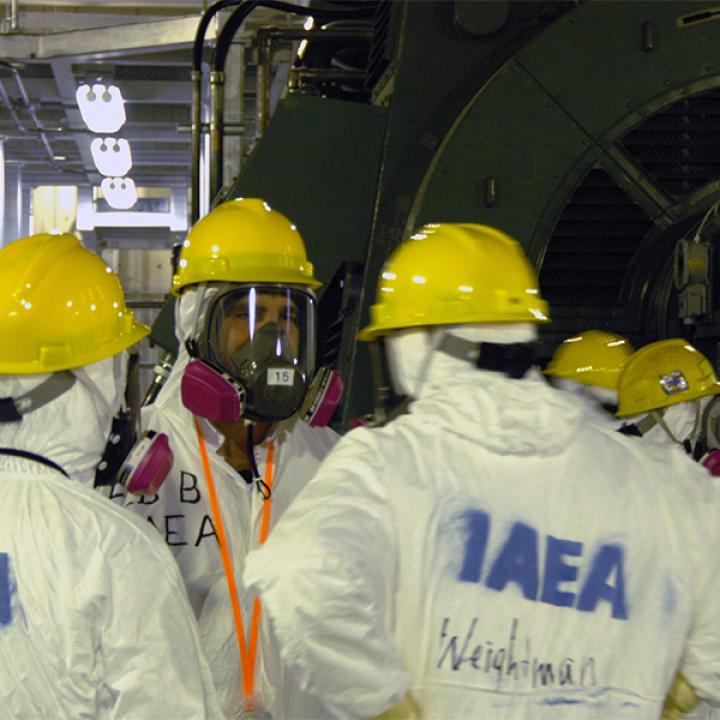
- Policy Analysis
- Policy Alert
Iran’s New Nuclear Law: Negotiating Tactic, Domestic Political Tool, or Both?

The seemingly provocative legislation is as much theater as reality given the parliament’s relatively small role in foreign policy.
On December 2, Iran’s Majlis passed new legislation called “The Strategic Initiative to Lift Sanctions and Protect the Rights of the Iranian Nation,” which calls for substantial new steps on the nuclear front. Specifically, if sanctions are not lifted in the next two months, the law requires the government to further reduce its compliance with restrictions mandated by the 2015 Joint Comprehensive Plan of Action (JCPOA) and cease voluntary implementation of the International Atomic Energy Agency’s Additional Protocol, among other actions.
In responding to the legislation, government officials gave very different messages to foreign and domestic audiences. During a video speech today before the Mediterranean Dialogues in Rome, Foreign Minister Mohammad Javad Zarif stated that if the initiative passes “all legal phases,” the government would be forced to comply with it. He also noted that the United States and other JCPOA signatories can prevent that outcome if they “fulfill their obligations.”
Back home in Iran, however, President Hassan Rouhani told the Majlis, “Don’t rush! Let us do our job!” He also asked all of the regime’s other branches for “advice,” but likewise told them, “Let us do our job carefully.”
Rouhani’s arrogant, even offensive tone toward the Majlis is hardly new, and provides further insight into the parliament’s domestic political weight—or lack thereof. The president made clear that in his view, the Majlis has no serious role in making decisions or shaping the country’s approach regarding the nuclear program or other major foreign policy issues. He was even more explicit than Zarif in stating that Iran would ignore the new law if the United States and Europe demonstrate their commitment to the JCPOA. Such dismissiveness may be warranted if recent history is any indicator. In 2015, for example, some Majlis members threatened to block authorization of the Rouhani government’s newly negotiated JCPOA. But when Supreme Leader Ali Khamenei sent a message that they should approve it swiftly, the parliament complied in less than 20 minutes, with some members voting it through without even reading it.
Rouhani is unlikely to have taken such a belittling attitude toward the new law without some knowledge or expectations about the Supreme Leader’s position on the matter. And the fact that the law passed does not mean Khamenei is bent on implementing its provisions. The Supreme Leader frequently allows the legislative and executive branches to clash publicly in this manner as a way of weakening them both and undermining their authority and autonomy. Moreover, when it comes to vital policy matters like the nuclear program, he often makes public pronouncements that differ from his desired ends, largely to avoid taking public responsibility if those policies play out unfavorably.
Nevertheless, in peering through the murk of the regime’s domestic politics, one conclusion about the new law seems clear: Khamenei is reluctant to take any irreversible steps that could spur further economic pressure on Iran or spoil a future Biden administration offer of negotiations. This calculation likely explains the regime’s passive reaction to the recent assassination of nuclear scientist Mohsen Fakhrizadeh, for which many hardliners have been demanding retaliation. Khamenei has ignored those demands so far, indicating his cautious attitude toward the incoming U.S. administration and his desperation for sanctions relief.
Mehdi Khalaji is the Libitzky Family Fellow at The Washington Institute.



